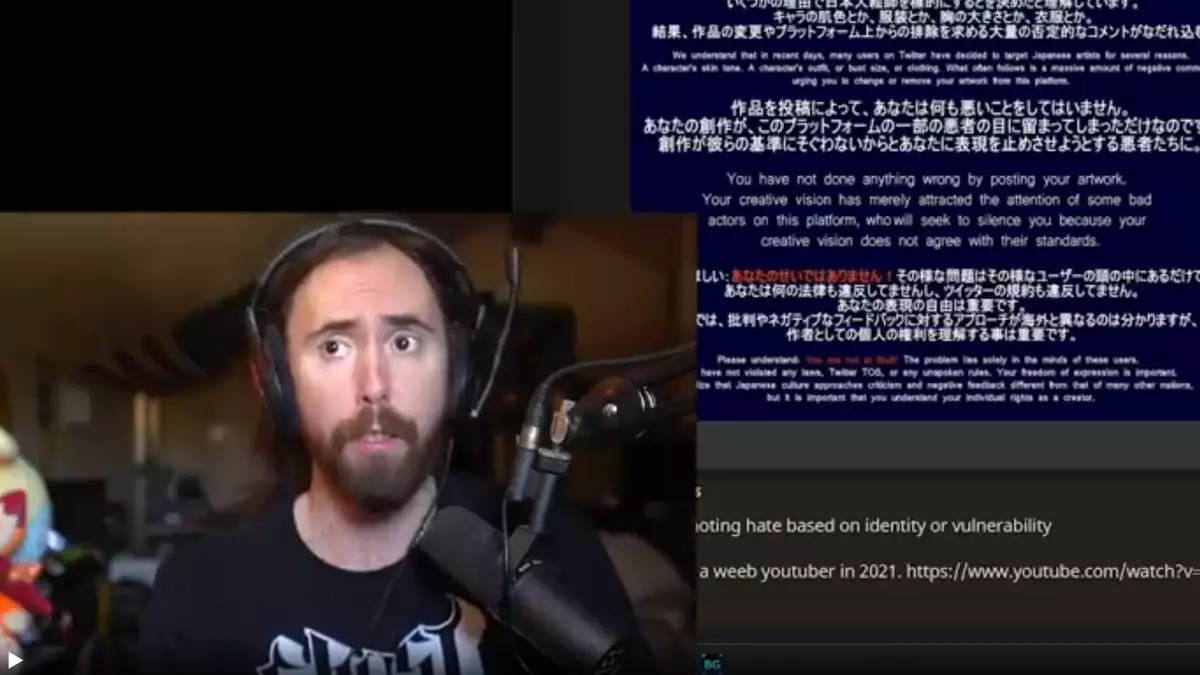Zack Hoyt, popularly known as Asmongold in the streaming community, has recently come under fire for remarks made during a live stream that many have characterized as inflammatory and deeply offensive. The streamer made comments regarding the ongoing crisis in Gaza, which the United Nations estimates has resulted in over 42,000 deaths, predominantly women and children. Asmongold stated that he was indifferent to the loss of life, labeling Palestinians as “terrible people” who belong to an “inferior culture.” Such statements not only shock the conscience but also raise substantial ethical questions about the responsibilities of public figures in shaping discourse, especially during times of international turmoil.
In a disconcerting moment, Asmongold used language that many would consider incendiary. He stated, “If you want to consider it genocide as a systematic killing of a group of people, they have genocide built into Sharia law right now.” This phrase captured widespread attention on social media and led to an outcry, as calls for Twitch to hold him accountable proliferated.
Twitch, a platform known for its vibrant streaming community, has strict guidelines regarding hate speech, prejudice, and the promotion of discrimination. Asmongold’s statements seemingly contravene multiple aspects of these guidelines. Twitch does not allow any content that might promote hatred or intolerance nor does it condone any depiction that implies the superiority or inferiority of a group based on protective characteristics. Considering these principles, many users rightfully questioned how such remarks were permissible on a platform that has robust community standards intended to prevent the spread of violence and hate.
The streamer’s tirade against Palestinians not only reflects poorly on his character but also highlights a pressing issue related to a culture of accountability among influencers. In a world where social media can amplify voices, responsibility should weigh heavily on those who possess the ability to influence masses.
In the wake of this backlash, Asmongold offered an apology via X, attempting to mitigate the fallout from his earlier comments. He admitted to being “way too much of an asshole about the Palestine thing,” expressing remorse for the statements he shared during the stream. However, the reception to his apology has not been overwhelmingly positive. Many viewers have criticized the apology as insufficient, suggesting a lack of true understanding and acknowledgment of the impact of his words. When one trivializes a substantial humanitarian crisis, the expectation is that there will be an introspective approach to understanding the consequences of such rhetoric.
The backlash against Asmongold highlights a broader societal conversation around free speech and the balance between expressing opinions and being accountable for the repercussions of those opinions. Just because an individual has the right to voice their beliefs doesn’t absolve them of the responsibility that accompanies such expressions.
The repercussions for Asmongold have also manifested in concrete actions from the Twitch community, resulting in a ban on his secondary channel, “zackrawrr.” While his primary Asmongold account remains active for the time being, this incident serves as a stark reminder to content creators about the imperative of conscious communication. If Asmongold continues to evade a genuine reckoning with his statements, he may face longer-lasting impacts on his brand and career.
This situation extends beyond Asmongold; it invokes critical introspection regarding how public figures navigate sensitive topics, especially within the context of a polarized global landscape. As social media platforms and streaming services continue to grow as prominent channels for discourse, understanding the repercussions of one’s words will prove essential for creators wary of traffic-hardened reputations. While apologies are offered in the wake of missteps, the challenge remains: ensuring that words translate into meaningful changes in behavior and rhetoric moving forward.

